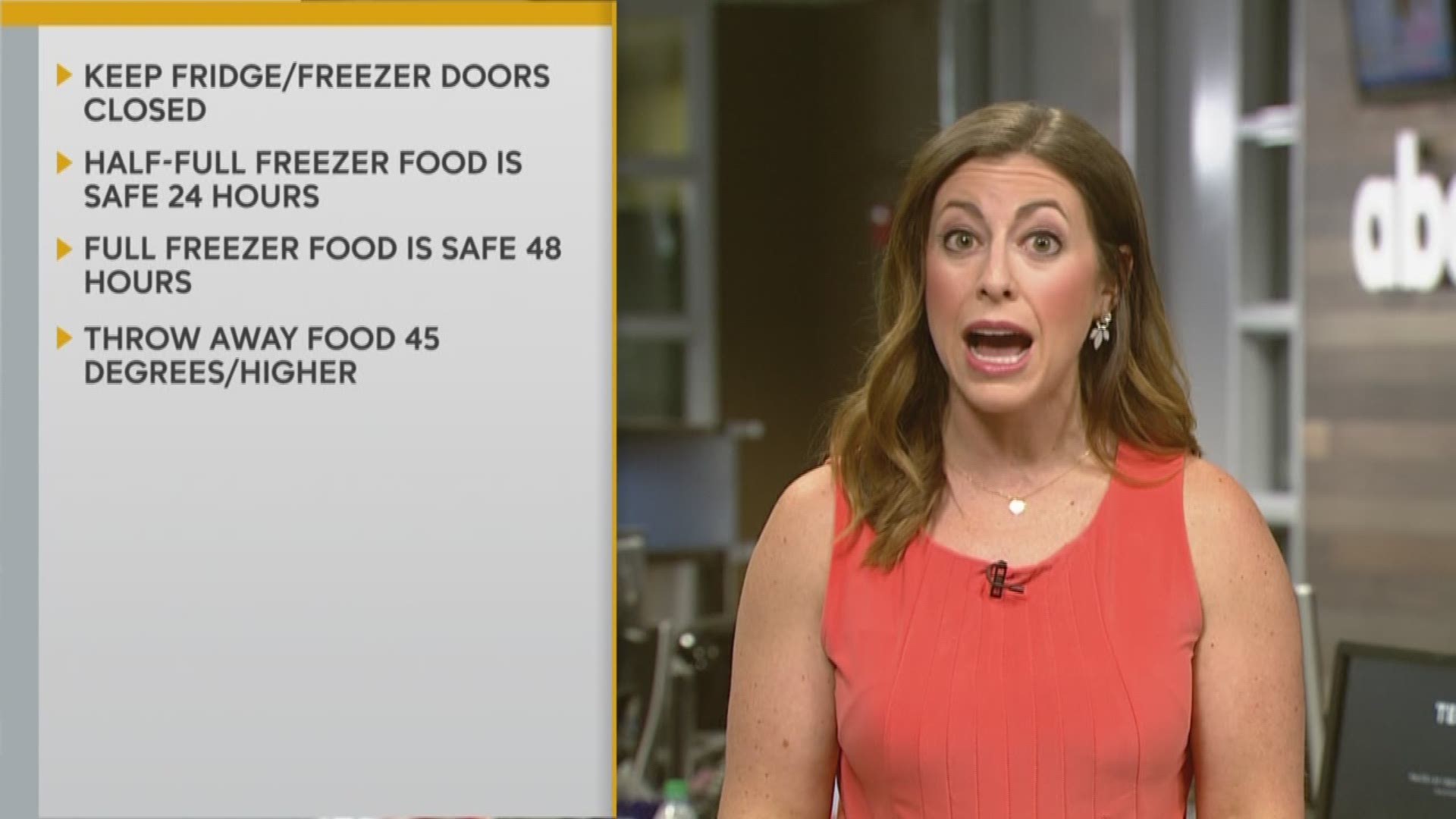The excessive heat causes people to run their air conditioners longer than usual and can put heavy demand on the electrical power which can cause power failure.
Experiencing a power outage has the potential to be over in minutes or up to hours, depending on the damage. So what should be done during that time span?
Many of us worry about food inside the refrigerator and freezer, along with other items. The California Department of Public Health (CDPH) provides safety tips that should keep you informed in case the situation arises.
"If the power is out for less than two hours, food in your refrigerator and freezer will be safe to eat. While the power is out, keep the refrigerator and freezer doors closed as much as possible to keep food cold longer," according to the CDPH.
Tips for food if power is out longer than two hours:
- Half full freezer will hold food safely for about 24 hours.
- Full freezer will hold food safely for 48 hours.
- DO NOT open freezer don't unless you need too.
- Refrigerator items like milk, other dairy products, meat, fish, eggs, gravy and spoilable leftovers should be packed into a cooler surrounded by ice. Styrofoam coolers are fine as well.
- Use "digital quick-response" thermometer to check the food temperature right before you cook or eat it.
- Throw away any food with a temperature of 45 degrees Fahrenheit or higher.
According to the Safe Electricity website, keeping items like flashlights, candles and matches, when the lights are out there's options to help see around the house.
When the electricity is eventually restored, unplugging appliances during the outage that have electronic components, like microwaves, televisions and computers will help eliminate damage from potential voltage surges.
Also, when inside during the day without air conditioning use fans or open windows to combat the heat as much as possible.
The CDPH recommends if water purification systems are down when an outage hits, then bottled or treated water should be considered safe water for drinking, cooking and personal hygiene.
Avoid at all costs using contaminated water to wash dishes, brush teeth, wash or prepare food, wash hands, make ice or baby formula and etc.
Bottled water can be used as previously stated, but make sure it came from a safe source. If you're unsure of it's origin then boiling it is an option which is a preferred way to kill bacteria, parasites and more that's harmful.
Also according to CDPH, your local health department has the ability to make specific recommendations for boiling or treated water in the area you reside.

